
Troubleshooting Guide For A New Baby
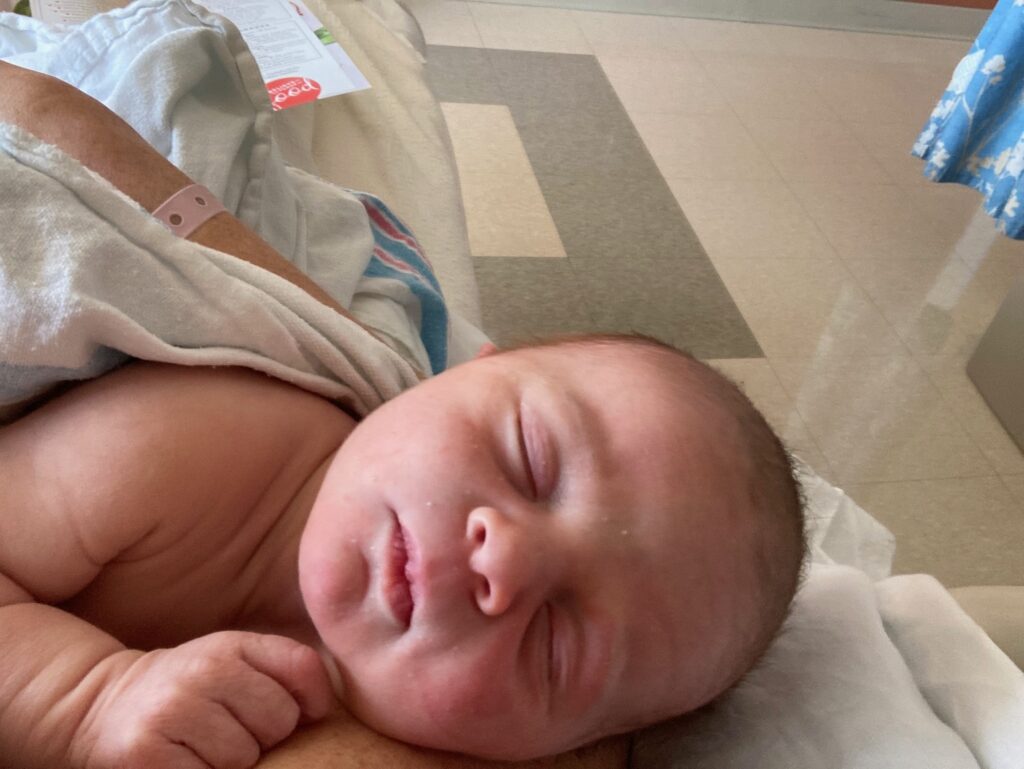
Here’s my troubleshooting guide for a new baby as a mom of three (almost 4!). I was just telling a friend that I didn’t want to learn anything new in the newborn stage with our fourth baby which is due in just a few weeks. Because it never fails that we learn something new with each kiddo, and frankly it can be exhausting! Does anyone else like routines instead of surprises when it comes to newborns?
I didn’t want to have all my Mama knowledge and experience go to waste, so I decided to jot down a few articles with some key things I’ve learned over the last 6 years. You can find the other articles HERE. In this article, my husband and I reflect on all of the things we know now compared to when we had our first kiddo and marvel at the learning curve of parenthood!
If I can save you a little stress and time by sharing some things I’ve learned, I’d love for you to be at least a step ahead of where I was with my first, second, or even third kiddo.
So here are a few of the challenges we experienced in the first year with our kiddos. We hope this troubleshooting guide for a new baby is helpful for you!
If you have read our articles on My Best Advice For Labor and My Ultimate Baby Essentials Guide, make sure you check those out, too!
Troubleshooting Guide For Baby Sleep Issues

I fault most of our first child’s sleep issues on our lack of knowledge as new parents. We relentlessly tried to put this kid to sleep via bouncing with no luck and multiple nighttime wakings until he was 9 months old! I didn’t know things could be easier. It feels like all you hear from people is that you don’t sleep once you have a baby, which makes it easy to accept as the truth.
Now depending on your preferences and philosophy, these tips may not be for you, and that’s ok! Some Mamas want to co-sleep and are happy to feed baby through the night for as long as possible to maintain their milk supply. For me, helping our babies sleep for longer stretches through the night as long as possible was essential to my physical and mental health. Especially when you have multiple other kiddos to care for!
My number one tip for baby sleep is to take the Taking Cara Babies Newborn Sleep Course. Now, I try to save money wherever possible, but this is 100% worth it! If you have a friend or family member who is having a baby, you can even gift them the course or give them a gift card that can go towards it.
As a PT, I appreciate this particular resource for a few reasons:
1. Cara was a trained NICU nurse and uses a developmentally appropriate approach to sleep:
As a healthcare provider, the reasoning behind everything in this course just makes sense. From how long to let baby cry, to wake windows, to observing changes in sleep during developmental milestones, I promise you will not regret taking this course!
2. The premise is a flexible schedule:
I am just not a person who can do a rigid schedule (not sure if that’s a personal flaw or not, ha!). I love that you can take the information in the course and adjust it to your family’s needs. Like if you want to go to an event that will go past bedtime, you have the freedom to do that!
We used this course for our two girls and they are AMAZING sleepers! Make sure you check out my ***baby sleep item recommendations in this article*** to get everything you need to help your baby become a great sleeper!
Troubleshooting Guide For Pain With Nursing Baby

I had pain for 6 weeks with nursing our first kiddo, but was in such a sleepless fog that I didn’t do anything about it and just hoped that it would get better. We have since found out that he has a lip tie, which also affected his speech. Just goes to show you that if something seems wrong, there’s probably something going on!
My advice to you: If you have significant pain with nursing past the first 3 days (or maybe even sooner for first-time moms), do these things:
1. Go see a lactation consultant: I know, it is SO HARD to get out of the house with a newborn in toe, especially when it’s your first time navigating this post-partum season. But it will be worth it! Not only can an LC assist with tips for positioning during nursing, but they can often also let you know if they see any lip or tongue ties that can affect latching, cause pain, and cause feeding problems for baby.
2. Ask your pediatrician to assess your baby for a lip or tongue tie: Depending on your doctor, some are better than others at identifying these abnormalities and making appropriate referrals. But this is a GREAT place to start, especially since you will be there any way within the first few weeks of baby’s life.
3. Ask for a feeding therapist referral: These are usually pediatric occupational or speech therapists who specialize in infant feeding. I’m biased, but I think therapists are uniquely trained and qualified to help with baby-feeding issues. You typically need a referral from a doctor, so even if your pediatrician doesn’t feel like you need it, don’t be afraid to advocate for a referral to outpatient therapy!
How To Introduce Solids To Baby
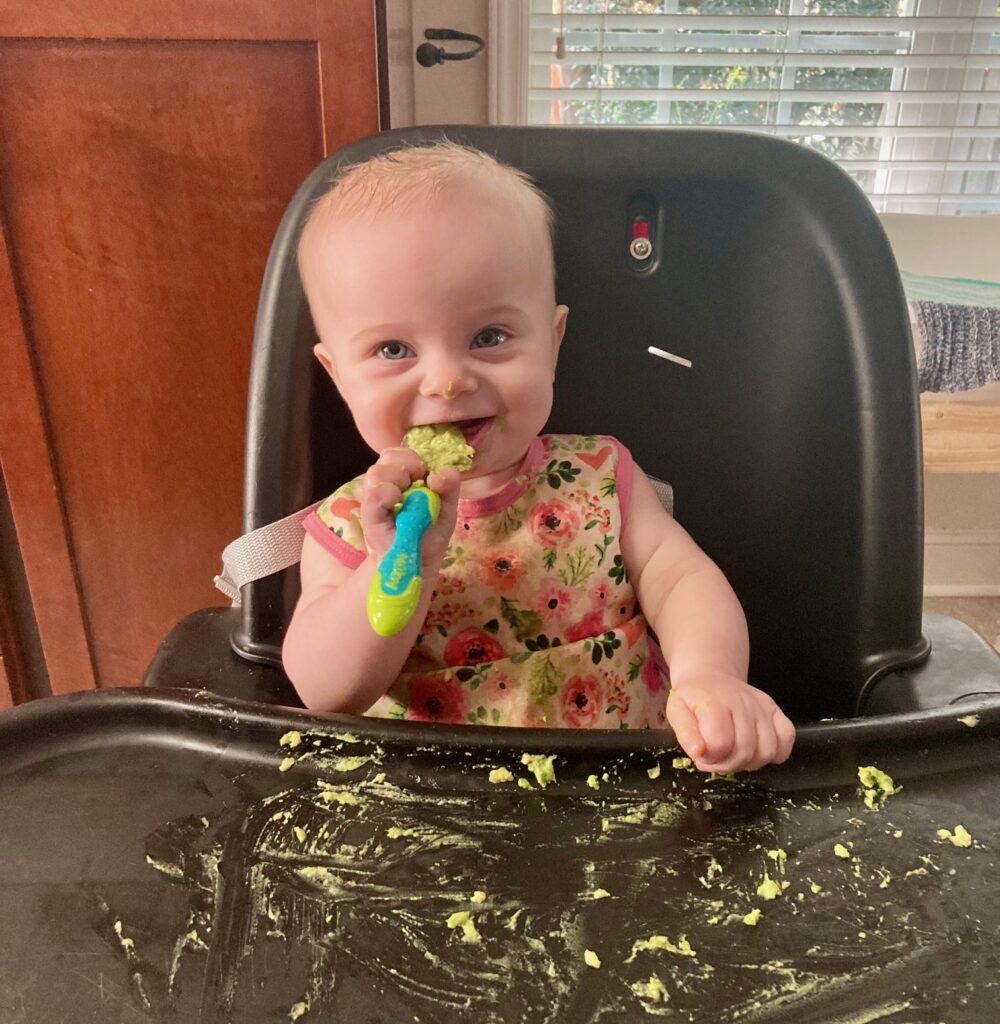
It can be so intimidating starting solid foods with your baby after months of them only drinking milk! I feel like parents need prenatal education on how to introduce solids to babies as much as they need education for baby sleep, nursing, and newborn care.
I personally think we fed our first kiddos purees for wayyy too long, simply because they are less scary than trying to give your kiddo table food in any form! We saw an increase in speech difficulties and a decrease in food variety with him compared to our daughters who we chose to go a different route with as far as introducing solids goes.
With our second child, I took the Feeding Littles Baby Led Weaning Course and it was LIFE-CHANGING for helping us introduce solids to our babies. I love that one of the main teachers is a pediatric occupational therapist who specializes in infant feeding. I truly think the reason our daughters progressed so well with their speech and food varieties was because of what we learned from this course. We even chose to progress our kiddos a bit more slowly than the course allowed, and they still did beautifully transitioning to eating solids!
What To Do For A Baby Who Refuses To Take A Bottle
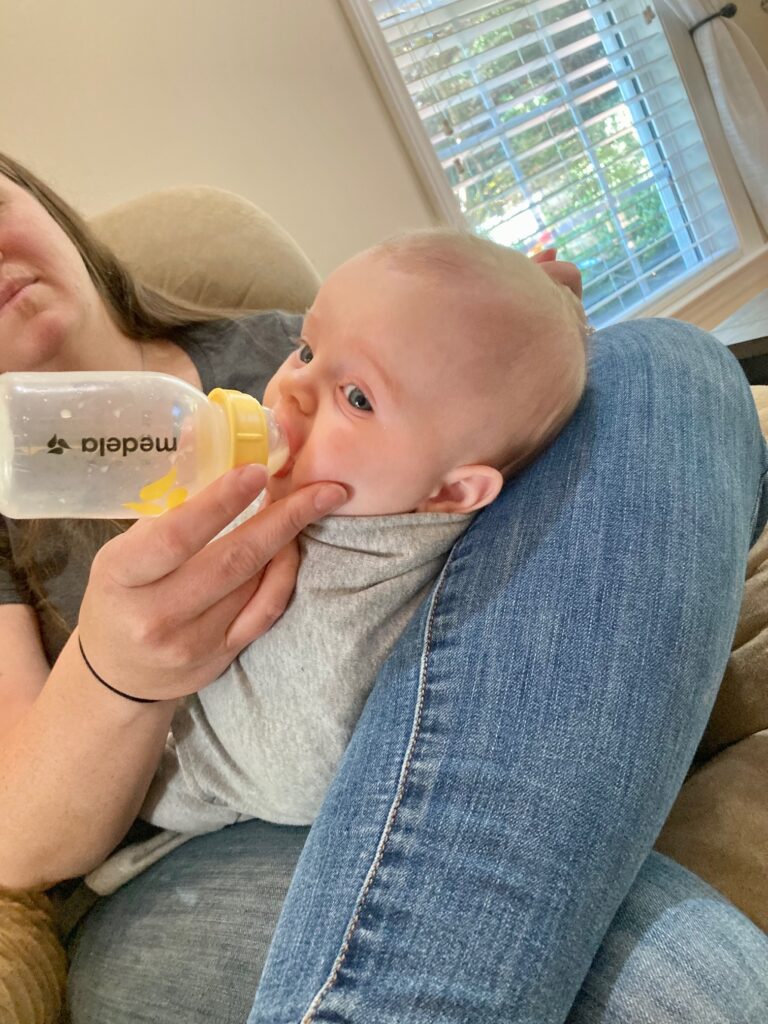
I’m guessing you or someone you know has run into bottle issues with their baby. And whether you’re a full-time working mom or a full-time stay-at-home mom, this situation can be VERY stressful! I’ve known several people who have told me that their kiddos never took a bottle.
Our third baby took a bottle initially but then stopped taking one. I remember rushing home from a friend’s baby shower because my husband had tried to give her a bottle and she wouldn’t take it!
Thankfully, I’ve got some AMAZING pediatric therapy friends who had some great insight to give us. One of my friends who works as an occupational therapist in the NICU came over and assessed “A” for me (see picture above). We learned that she had trouble with coordinated sucking, which was likely contributing to her not wanting to take a bottle. Taking a bottle was more challenging for her than nursing and she wasn’t into having to work harder to drink her milk! (Maybe this was evidence of her strong-willed nature to come!)
So we worked on oral stimulation, sucking on a pacifier, and eventually, “A” became a champ at consistently taking a bottle over a few weeks. That was a huge Mama win for me because it meant I could be away from her for more than a few hours if needed. Even if I was home most of the time, just having the ability to be away for a bit is so freeing! Especially the freedom to bring in an income when I started picking up shifts at work again.
My advice:
If you have a baby who has trouble taking a bottle, nursing, or eating a variety of table foods when the time comes, ask your pediatrician to refer you to a feeding therapist. This is typically a pediatric speech or occupational therapist. Most parents assume their pediatrician will be the one who pushes for services that their child needs, but oftentimes it’s the parent’s encouragement that ends up getting kiddos what they need. Don’t be afraid to bring up concerns and ask to see a therapist, even if your pediatrician doesn’t think it’s necessary.
Troubleshooting Guide For A Congested Baby
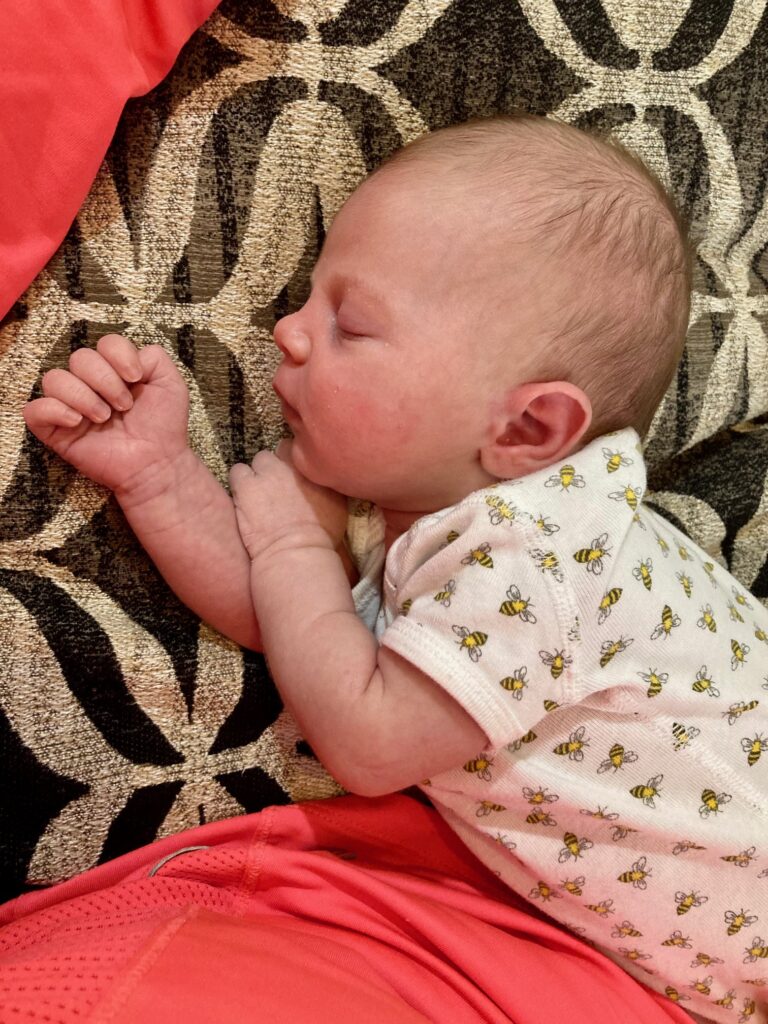
We never had to worry about a snorty newborn waking themselves up in their sleep because of congestion until we had our third baby. She would literally wake herself up multiple times a night due to congestion and we were at a loss! Even our pediatrician didn’t have any recommendations for us.
Thankfully, our neighbors told us about the Nose Frida, which is essentially a booger sucker for babies. It took us a while to get used to because you suck through one end of the device and that suction ends up pulling out any congestion baby has. (Don’t worry, there’s a filter that keeps everything sanitary!) It was a game-changer for “A” in those early weeks and they work wonders for kiddos who are sick, too.
Other than the Nose Frida, keeping baby upright for sleeping, using a humidifier, and steaming up a bathroom for warm + moist air has helped give our babies relief when they’re congested.
Praying for you Mama as you start this new adventure of motherhood! We hope this troubleshooting guide hits at least one of the challenges you face with your new baby and that it can help make life a bit easier for you. Thankful for you!
What have you learned from your newborn and baby experiences? Let us know in the comments!

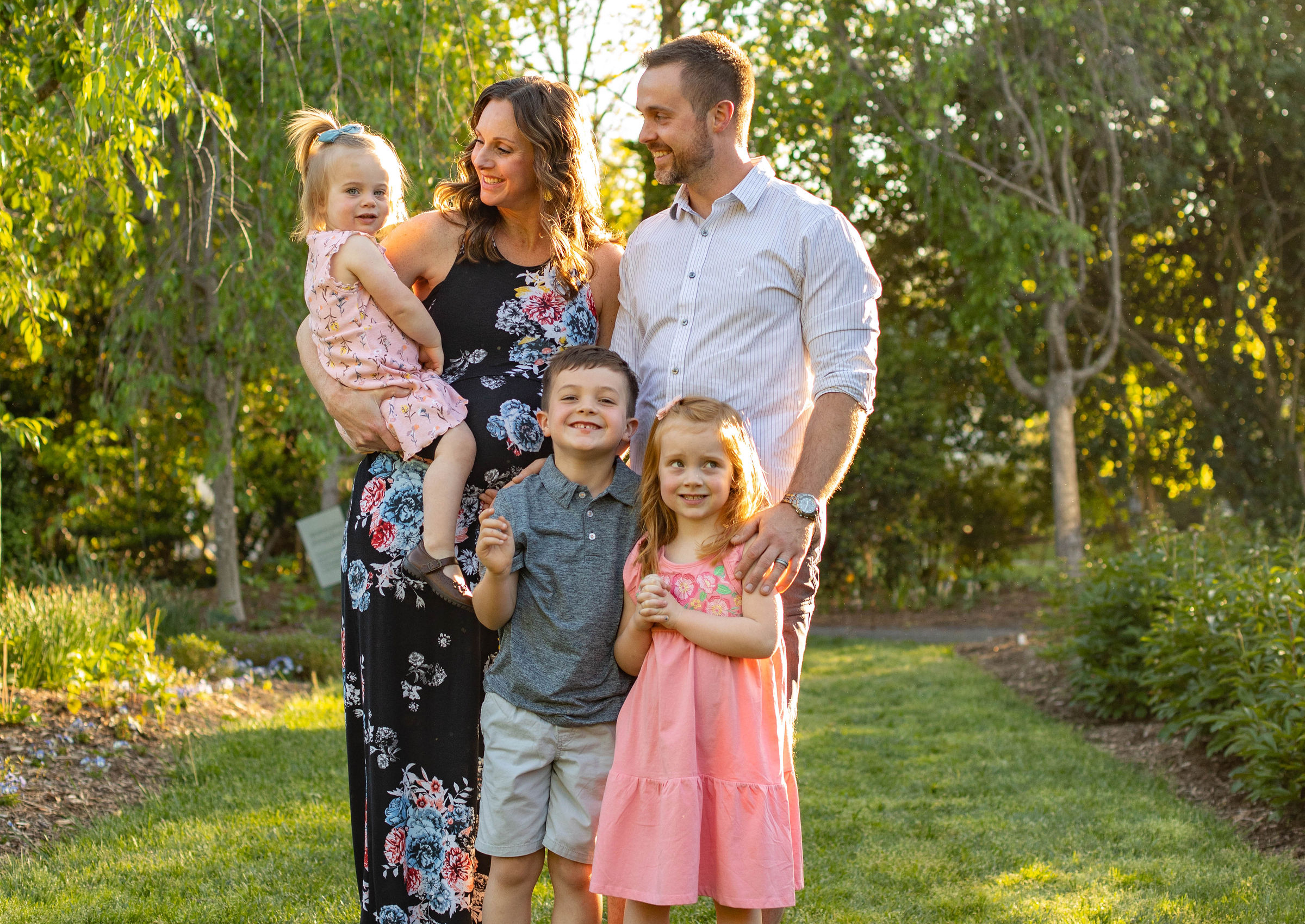




2 Comments
Pingback:
Pingback: